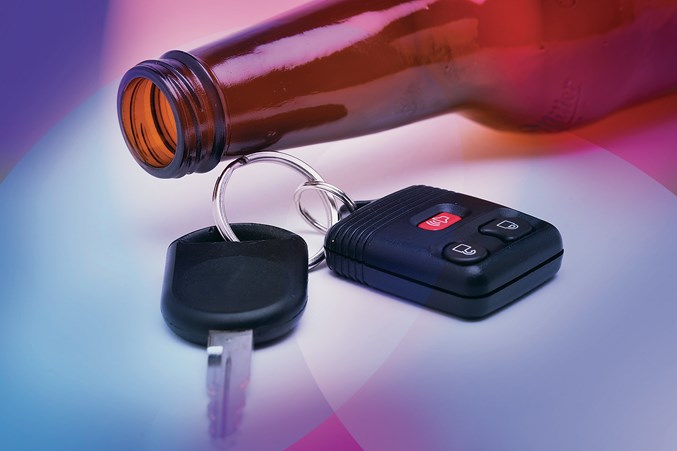Effective Dec. 18, changes to Canada’s Criminal Code will allow police to immediately demand a roadside breath test from anyone they pull over during a traffic stop, or even at a checkstop.
Bill C-46, which amends the Criminal Code to give police the new powers was passed at the same time as Bill C-45, which legalized cannabis across Canada, though RCMP note C-46 applies only to liquor.
Currently, police must have a reasonable suspicion to demand a breath test, but under the new law drivers must provide an immediate sample.
“Basically everyone driving will be required to provide a breath sample,” said Westlock RCMP Const. Karen Vicente.
“As of Dec. 18 we will be able to come up to your window with our roadside alcohol screening device and tell you to blow. Normally at an Alberta checkstop, you would be asked to provide your licence, registration and proof of insurance. Generally we would ask if you have consumed any alcohol. But now you will be providing a sample of your breath instead of us asking. It’s going to have a huge impact.”
Police will have a chance to test their new powers soon as Westlock’s annual Candy Cane Checkstop is expected to be in operation this week, though the exact date has not been released.
Vicente said that during the RCMP’s Dec. 1 Impaired Driving Enforcement Day, 200 vehicles were stopped, which resulted in one roadside suspension, three tickets for transporting liquor in a vehicle and one charge for driving while suspended.
Under the new legislation, anyone who refuses to take a roadside test could face a criminal charge with similar penalties to impaired driving.
Under the current law, federal justice minister Jody Wilson-Raybould estimates that up to 50 per cent of impaired drivers were able to sneak through checkstops undetected.
Similar legislation has been passed in over 40 countries, including Australia, France, Germany, Sweden and Ireland where it’s credited with reducing road deaths.
Police will not only be able to conduct roadside tests at checkstops, but will also be able to demand one if a driver fails to stop at a stop sign or crosswalk, is stunting or displays any other suspicious behaviour behind the wheel.
Failing a roadside test could result in being taken to a local detachment for a breathalyzer test to measure blood alcohol content.
Cannabis
Police are also advising residents that they’ve been trained to identify if a driver has consumed cannabis and can demand saliva and blood samples if necessary.
Anyone caught with between two to five nanograms of tetrahydrocannabinol (THC) — the active ingredient in cannabis — could face a $1,000 fine. Having more than that will net a minimum $1,000 fine for the first offence, 30 days in jail for the second and 120 for the third.
The maximum penalty for being impaired and causing an accident causing bodily harm is 10 years imprisonment.
Because the amount of THC absorbed can vary from person to person, people are advised to not drive for at least four hours if they have smoked cannabis.
Vicente said that police have seen a mix of drivers under the influence of alcohol and under the influence of pot, with a few caught under the influence of both.
“There’s people that are drinking and there’s people who are smoking,” she said. “We do get the odd person who’s done both, but not nearly as much as people who are straight alcohol or marijuana. But in either case, it will result in an impaired driving charge.
“There’s really no good or bad time for impaired driving. Unfortunately we see impaired drivers all the time.”
Have a plan
Vicente recommends people have a plan in place before heading off to their Christmas parties.
Noting that Westlock only has one taxi service and they shut down at 7 p.m., she said people need to either designate a sober driver ahead of time.
“If someone is agreeing to be the designated driver, make sure they’re being responsible and also are not going to drink,” she said. “We actually do see cases where the person says that they’re the designated driver and they turn out to be impaired, they just happen to be the more sober one in the vehicle. That doesn’t count.”



